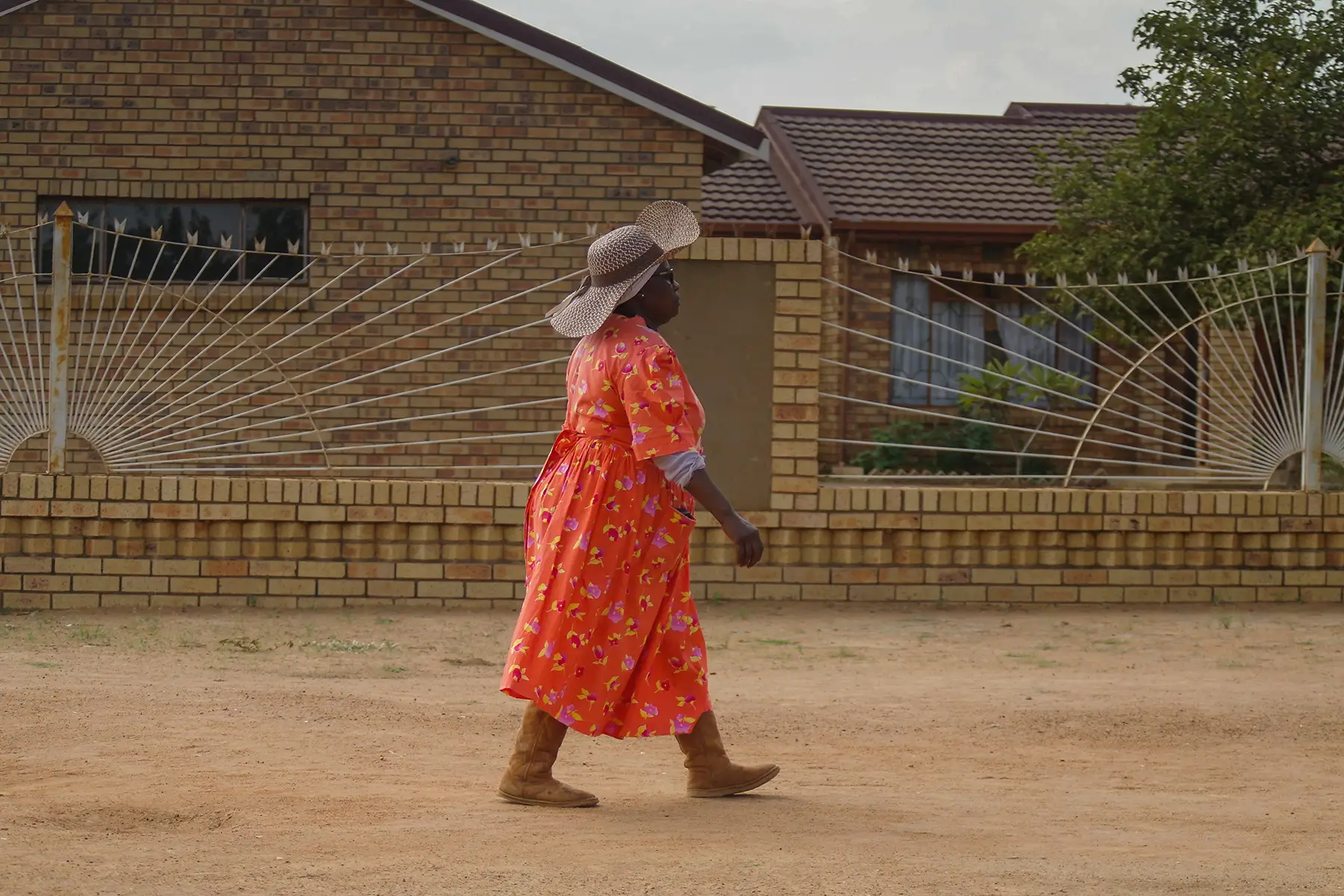When it comes to inheritance and wills, the South African system is inclusive; whether its recognizing the rights of foreigners or residents or people in customary marriages, there is a pertinent law. So, writing a will in South Africa can be a very straightforward process, provided that you do your homework and seek professional guidance when needed.
Discover more about wills and estates in South Africa by reading the following:
- Wills and estates in South Africa
- Inheritance law in South Africa
- Wills in South Africa
- How to write a will in South Africa
- Executing a will and grant of probate in South Africa
- Getting your estate valued in South Africa
- Inheritance tax in South Africa
- Tips on planning your estate in South Africa
- Useful resources
CurrencyFair
When planning for the future, make sure you keep your money secure and find the best rates for international transfers. CurrencyFair allow you to move your money abroad securely at just the touch of a button. Whatever your personal or business needs, find a rate that works for you at CurrencyFair.
Wills and estates in South Africa
Most people in South Africa make a will and it is fairly simple to do so – you can even draw one up yourself and, along with two witnesses, finalize it in a day!
If you’re in no particular rush, though, it’s probably best to hire an attorney specializing in inheritance law to help you understand the process and choose the best way to divide your assets. Keep in mind that your estate includes everything of value that you own – for example, properties, trusts, bank accounts, pensions, and more.
Inheritance law in South Africa
Inheritance law in South Africa applies to everyone who owns property in the country and generally respects the wishes of the deceased’s will. The only exception is, if a spouse is left out of a will, they can petition to claim part of the estate to support themselves, through the Maintenance of Surviving Spouses Act.
South Africa does not practice forced heirship. However, there are a few legal requirements if the deceased dies without leaving a will.
For more information on succession, check out our article on inheritance in South Africa.
Inheritance law on pensions
If the deceased was receiving or set to receive a pension, they’d usually have recorded the beneficiaries of their retirement fund; the pension is usually included within the overall value of the estate.
As a loved one, it’s in your best interest to hire an expert to help you understand your options. This is because questions like whether you should receive the pension in the form of a lump sum, or an annuity, affect your tax concessions and rates, so be sure to make an educated decision.
Applicable foreign inheritance laws
To avoid complications with the estate distribution, it is a good idea to draw up a South African will if you have assets in South Africa. It’s also allowed (and probably wise) to draw up more than one will – one relating to South African assets and one relating to assets abroad.

If you do this, however, be sure to consult a solicitor with international expertise to ensure one will does not negate the other.
Rejecting assets and contesting a will
If you are bequeathed assets, you’re well within your rights to reject them. If, however, you want to contest a will, things can get tricky because South Africa doesn’t operate under a ‘right to inherit’ system, whereby a child or a parent or sibling has a right to the estate of their loved one.
You can try to contest a will on the grounds of forgery or that the person wasn’t in their right mind, or a few other specific instances; if you’d like to go this route, get some legal help to advise you on the process.
Inheritance law in South Africa if there is no will
When an individual dies without a will in South Africa, the estate is distributed according to the Intestate Succession Act. Intestate succession in South Africa allows for estate division between a surviving spouse and children, with the surviving spouse receiving at least R250,000 or a child’s share, whichever is greater.
If spouses were married in community of property (i.e., they were joint owners), then one half of the estate goes to the surviving spouse and the other half is distributed according to the laws of intestate succession in South Africa.
Unclaimed inheritance in South Africa
In the event that you don’t leave a will in South Africa and have no immediate relatives among whom your estate can be distributed, the estate is then divided between the nearest blood relatives as per the Intestate Succession Act.
If the deceased leaves behind no blood relatives and no will, the estate will become the property of the state.
Gifts before death
If the deceased made major gifts or donations before their death or throughout their life, they would have had to comply with the corresponding tax rates, depending on the value of the gift.
It’s not likely that a deceased’s estate would be taxed for gifts they made before their death, but if this is an area of concern, seek professional advice that is specific to your situation.
Wills in South Africa
If you have property or assets, it’s wise to make a will, if only to make sure that your wishes are respected. If you’re a foreigner, with ties and assets in another country, it might make sense to have two wills to apply to your assets in South Africa and in your home country – just be sure that the contents of each will do not contradict or nullify each other.
Fortunately, you can change or revoke your will whenever you’d like, just as long as the changes meet the requirements for a valid will. As always, if you have complicating circumstances, be sure to seek appropriate legal advice to avoid potential pitfalls.
How to write a will in South Africa
Drawing up your last will and testament in South Africa involves certain formalities, some of which are the same as in many countries. For example, you will need to appoint an executor to administer your estate in the event of your death. The executor will perform duties such as dealing with creditors and debtors and paying costs such as estate duty and funeral bills out of the estate account.

You can also draw up a South African will on your own provided you have witnesses, or you can enlist the help of a professional such as a solicitor, a bank, or a professional will writer. You can also draw up a joint will with your spouse.
Basic requirements of a will
The Wills Act South Africa regulates the formalities for drawing up a South African will. These include the following:
- The will must be signed at the foot of each page;
- The will must be signed in the presence of two or more witnesses;
- The witnesses must be aged over 16 and must also sign the will;
- The witnesses may not be executors or beneficiaries
What you’ll need to write a will
The following items are required to draw up a last will and testament in South Africa:
- Name and identification details of the executor of your estate
- Name and ID number of your spouse and details of your marriage (e.g., whether you have community of property)
- Copy of your South African marriage certificate (or decree of divorce and settlement agreement)
- Names and ID numbers of all children/dependents you wish to benefit from your will
- Names and ID numbers of any grandchildren
- The name and contact details of a guardian/guardians if you have young children
- Details of any parties or institutions you wish to benefit
- Copies of title deeds for immovable properties in South Africa (or mortgage bonds thereof)
- Copies of all insurance policies
- An inventory of liabilities
Getting assistance for writing your will
If you have a complicated estate, contact an attorney to draw up your will. If you’d rather draw up a will on your own, consult a South African will template.
In any case, once you’ve written your will, be sure to make copies and to keep the original safe; also, be sure to let your loved ones know where to find it.
Revoking or amending your will
If you would like to change your will, you can either amend it through a codicil, which essentially serves as an update to the will and which must comply with the requirements of a valid will, complete with two witnesses. Fortunately, your two witnesses for the codicil do not need to be the original two who signed the will.
You can also entirely revoke a will by creating a new will stating that the prior will is revoked, or by simply destroying your old will.
If you’d like to change or revoke your will, however, we highly advise that you seek legal help to make sure you don’t make any mistakes.
Executing a will and grant of probate in South Africa
After a death, family members or loved ones have two weeks (14 days) to notify the Master of the High Court of the death to begin the process of settling the estate, including officially recognizing the executor.
Within a will, a deceased will also have noted the executioner of their estate; this person will collect the deceased’s assets, pay any debts, and distribute the estate to the beneficiaries.
Because of the technical nature of the work, many choose to appoint their lawyer as their executor. You can check a lawyer’s credentials by making sure that they’re registered with the Law Society of South Africa.
Getting your estate valued in South Africa
Your estate will include a variety of assets and debts depending on your particular situation, for example, properties, investments, pensions, liquid assets (checking and savings accounts), among others. Keep in mind that, if you have to get property valued, you’ll need to use an appraiser, which is someone who specializes in valuing deceased estates.
Inheritance tax in South Africa
South African inheritance tax, or estate duty, applies to all estates valued above a certain amount and estates may be subject to capital gains tax and donations tax. Read more about the types of tax in South Africa.

Estate duty in South Africa applies to estates worth more than R3.5 million. Beyond that, the tax rates are as follows:
- R3,500,000 – R30,000,000 – 20%
- R30,000,001 and above – 25%
Tips on planning your estate in South Africa
We cannot say this enough – it is in your best interest to hire an attorney when drafting your will because they have the professional perspective to be able to understand your particular situation and to give proper advice on the best way forward.
If you are a foreigner or have foreign assets, you have more to keep in mind. For example, if you have properties outside of South Africa and have a separate will for those assets, your executor in South Africa may not have jurisdiction to execute your secondary will in your home country. These are the kinds of situations that an attorney can help you solve.






